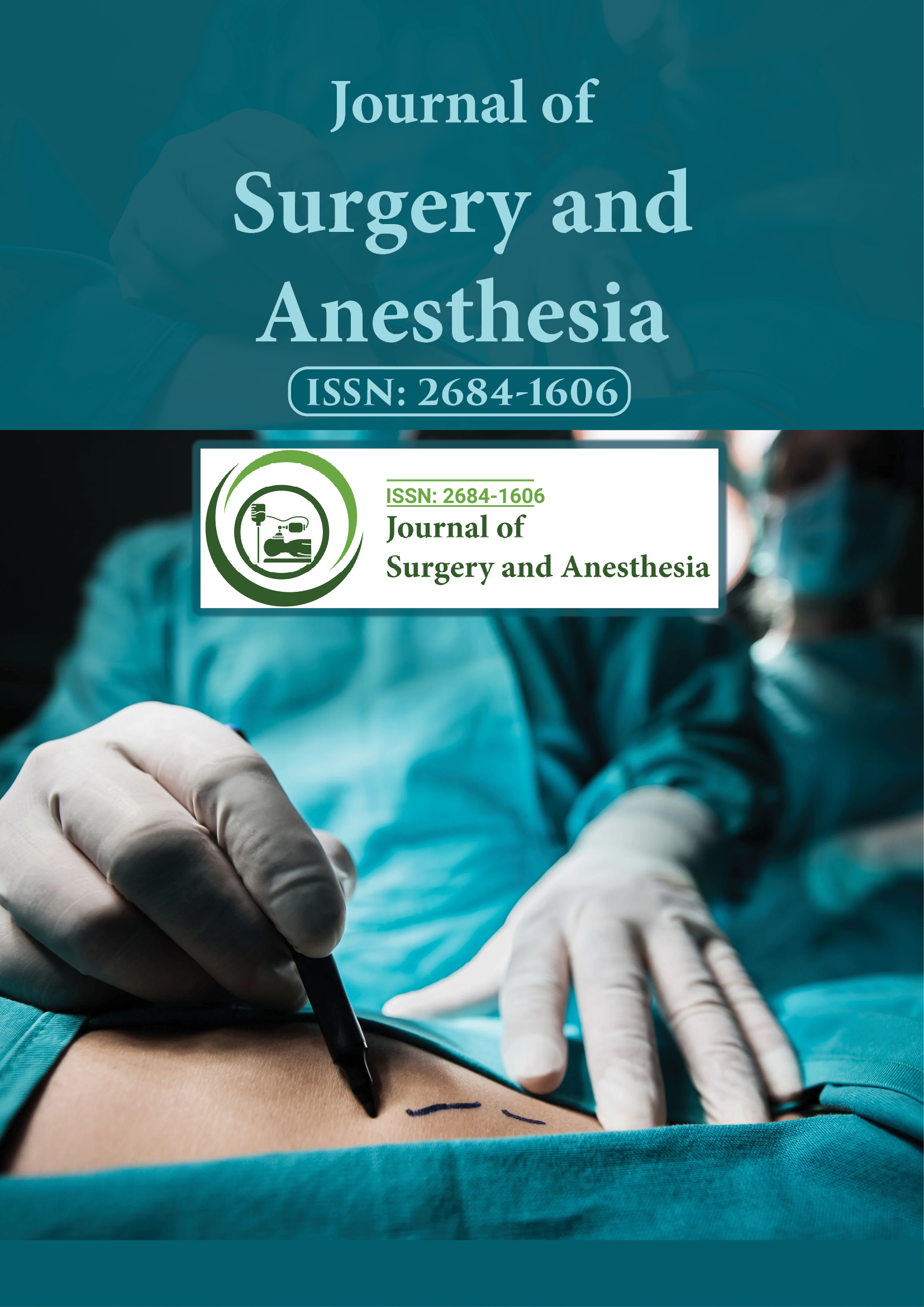Indexed In
- Google Scholar
Useful Links
Share This Page
Journal Flyer

Open Access Journals
- Agri and Aquaculture
- Biochemistry
- Bioinformatics & Systems Biology
- Business & Management
- Chemistry
- Clinical Sciences
- Engineering
- Food & Nutrition
- General Science
- Genetics & Molecular Biology
- Immunology & Microbiology
- Medical Sciences
- Neuroscience & Psychology
- Nursing & Health Care
- Pharmaceutical Sciences
Commentary - (2024) Volume 8, Issue 3
Comprehensive Care for Oncology Patients Facing Surgery
Zivanovic Radission*Received: 26-Aug-2024, Manuscript No. JSA-24-27049; Editor assigned: 28-Aug-2024, Pre QC No. JSA-24-27049 (PQ); Reviewed: 11-Sep-2024, QC No. JSA-24-27049; Revised: 19-Sep-2024, Manuscript No. JSA-24-27049 (R); Published: 26-Sep-2024, DOI: 10.35248/2684-1606.24.8.257
Description
Preparing oncology patients for surgery requires a multi-faceted approach, considering the unique challenges presented by both the cancer itself and the treatments the patient may have already undergone. Surgery remains a key component in the treatment of many cancers, whether as a primary intervention, part of a broader treatment plan, or for palliative purposes. However, oncology patients often present with compromised health due to their underlying disease, comorbidities and treatments such as chemotherapy and radiation therapy. Therefore, a structured and individualized plan is critical to optimize their surgical outcomes and overall recovery.
The preoperative evaluation is the center for preparing oncology patients for surgery. A thorough assessment must be made to understand the patient's physical status, cancer stage and any pre-existing conditions that could affect surgical outcomes. A detailed medical history should be taken, focusing on the type of cancer, previous treatments, current medications and any existing comorbidities. This helps the surgical team understand the patient's baseline health status and any potential risks. Particular attention should be given to prior chemotherapy or radiation treatments, which can impact the patient’s ability to heal post-surgery. A complete physical examination should be conducted to assess the patient’s overall health and fitness for surgery. Vital signs, weight, muscle mass and signs of infection or malnutrition are key indicators of how well the patient may tolerate surgery. For patients with advanced or metastatic disease, preoperative imaging is vital to determine the extent of cancer spread and the feasibility of surgery. Routine blood tests, such as Complete Blood Count (CBC), liver function tests, renal function tests and coagulation profiles, help identify any abnormalities that could pose a risk during or after surgery. Special attention should be paid to anemia, thrombocytopenia and electrolyte imbalances, which may require correction before surgery.
Many oncology patients, particularly older individuals or those with a history of smoking, may have underlying cardiovascular or pulmonary conditions. A thorough cardiac evaluation, including an Electrocardiogram (ECG) and possibly an echocardiogram or stress test, may be indicated. Pulmonary function tests can help assess respiratory capacity, especially in patients undergoing thoracic surgery. Malnutrition is common in cancer patients, particularly those with gastrointestinal cancers or those who have undergone chemotherapy or radiation therapy. Poor nutritional status is associated with an increased risk of complications such as infection, delayed wound healing and prolonged hospital stays. A formal nutritional assessment, often performed by a dietitian, is essential in identifying deficiencies and providing tailored recommendations. Body Mass Index (BMI), recent weight loss and serum albumin or prealbumin levels are common measures used to assess nutritional status. Patients who are malnourished or at risk of malnutrition should receive preoperative nutritional support. This may include high-protein, high-calorie oral supplements or, in severe cases, enteral or parenteral nutrition. Ensuring that patients have adequate nutritional reserves before surgery can significantly improve recovery outcomes. Many oncology patients have multiple comorbidities, such as diabetes, hypertension, Chronic Obstructive Pulmonary Disease (COPD), or kidney disease. Proper management of these conditions is vital to minimizing surgical risks.
For diabetic patients, blood glucose levels should be well controlled before surgery to reduce the risk of infection and impaired wound healing. Preoperative optimization of insulin or oral hypoglycemic agents may be necessary and blood sugar levels should be closely monitored in the perioperative period.
Uncontrolled hypertension can lead to complications such as bleeding, stroke, or heart attack during or after surgery. Blood pressure should be stabilized with appropriate medications and abrupt discontinuation of antihypertensives should be avoided. Patients with chronic respiratory conditions, such as asthma or COPD, are at higher risk for postoperative respiratory complications. Optimizing lung function through bronchodilators, steroids, or respiratory therapy can help mitigate these risks. Smoking cessation should be encouraged well in advance of surgery. Undergoing surgery for cancer can be an emotionally and mentally taxing experience. Addressing the psychological needs of patients is a vital aspect of preoperative preparation. Anxiety about surgery and its outcomes is common among oncology patients. Preoperative counseling and education about the procedure can help alleviate fears and prepare the patient mentally for the surgery. Techniques such as relaxation exercises, breathing exercises, or meditation can also reduce stress.
Family members and caregivers play an important role in a patient's emotional well-being. Involving them in preoperative discussions and decisions can provide additional emotional support and help the patient feel more secure about the upcoming surgery. Depression is prevalent among cancer patients and can negatively affect surgical outcomes by impairing adherence to preoperative instructions and postoperative recovery plans.
Citation: Radission Z (2024). Comprehensive Care for Oncology Patients Facing Surgery. J Surg Anesth. 8:257.
Copyright: © 2024 Radission Z. This is an open access article distributed under the terms of the Creative Commons Attribution License, which permits unrestricted use, distribution, and reproduction in any medium, provided the original author and source are credited.
